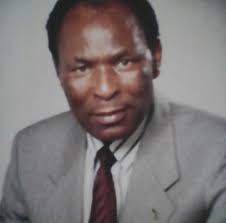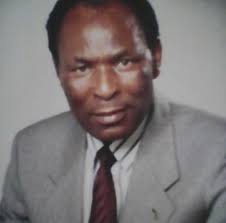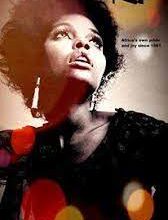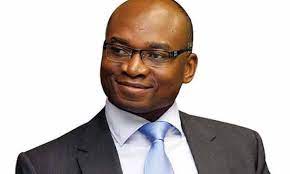Morrison Sifelani – The Crew that Delivered Dembare

Morrison Sifelani

By Tapfuma Machakaire
As a retired sports administrator, the late Morrison Sifelani never minced his words when he spoke about the disgraceful state of football management in the country from the late 1990’s.
Corruption in football in Zimbabwe escalated to a global level in February 2012 when 80 footballers were suspended as part of a match fixing probe which became known as the Asiagate scandal.
The players, who included leading members of the national team, were alleged to have taken bribes to throw friendly matches between 2007 and 2009.
David Coltart, then Minister of Education Sport and Culture described the national administration of football as shambolic. Coltart said the structure of the professional game had declined and that at the core were a few administrators who led the players astray through greed.
Asked if he would consider going back to football administration to clean up the mess Sifelani said, “I cannot go back to soccer right now because all the hands that are currently running it are bloodied. They are all like Lucifer in the Bible, busy trying to selfishly make money for themselves and not worrying about the game, which we all love in Zimbabwe.”
Sifelani said the only person he admired in local football was the late John Madzima. “Madzima was a man of principle and courage. While people do not appreciate it, he did a lot for our football. History will judge us and please write that John Madzima was and will forever be the best man that ran football in our dear Zimbabwe.”
Madzima was the first black football administrator who was honoured with the Most Excellent Order of the British Empire by Queen Elizabeth II for bringing about change in the then segregated sport and putting Southern Africa football on the map. Sifelani worked with Madzima in football administration before and after independence in 1980.
One speaker at Sifelani’s funeral in December 2010 described him as a shrewd and intelligent football executive and businessman. Sifelani is among a team of individuals who responded to developments in 1962 which saw the formation of a white only team-Salisbury Callies, and the disbanding of two local black teams Salisbury City and Salisbury United in Rhodesia.
In 1963 Sifelani and a team that included Sam Dhauya, Richard Chiminya, Patrick Amato Dzvene,Benard Morris Lusengo, Obadiah Sarupinda, Freddy Mukwesha, Jairos Banda, Denver Mahachi, Shacky Chitimbe, Danny Bricks Thomas and Josiah Akende joined hands to form a black dominated football club, Dynamos FC. Dynamos became one of the strongest teams in the league. By independence in 1980 the team had clinched six league titles.
Born in 1935 in Ntabazinduna communal area in Matabeleland South province of Zimbabwe Morrison Longstaff Sifelani did his education at Dadaya Mission in Zvishavane later moving to Thekwane High in Plumtree. He obtained a diploma in communication for development from Thompson Foundation in Cardiff, Wales.
Sifelani whose love for the game was driven by his skill on the ball was among the first to play for Dynamos FC together with Benard Marriot, a co-founding member of the club.
In 1975 Sifelani obtained a football association coaching badge from the United Kingdom. This saw him being appointed coach of Dynamos the same year. Sifelani is credited for helping attract sponsors to his club Dynamos during his tenure as its chairman.
He was also the man behind the Hippo Valley Football Club, a development that saw the introduction of professional football in the sugar estates. Sifelani equally played a leading role towards the development of Ziscosteel Football club at the time he worked at the steel manufacturing company in the Midlands Province.
In 1993 Sifelani in collaboration with other football administrators led top clubs to break away from the then Super League to form the National Premier Soccer League (NPSL) which he chaired with Chris Sibanda as Secretary General. The league later changed its name to Premier Soccer League (PSL).
As chairman of Dynamos FC, Sifelani led his club to some of its renowned successes such as the 1998 Confederation of African Football Champions League where his team lost to ASEC Mimosas of Cote d’Ivoire in the final.
In 2006 Sifelani launched a brazen attack on politicians whom he accused of interfering in the ownership wrangle of Dynamos FC. He said, “Itis criminal, diabolical and satanic that some politicians and illegitimate people with no links to the club just take over what we have sweated for, and we make no apologies for defending the institution of Dynamos.” He constantly reminded such individuals that “If you are not part of the solution then you are the problem”
Sifelani briefly worked in Nairobi Kenya and served as Public Relations Officer for the then Natural Resources Board (NRB) now Environmental Management. Agenc (EMA). Sifelani once held the prestigious posts of Chief Executive officer of Zimtrade the country’s trade promotion body and President of Confederation of Zimbabwe Industries (CZI).
He had become very active in civil society and at the time of his death on December 10, 2010, was a board member of the Gweru Agenda and a regional board member of ZimRights.
The late Ndumiso Gumede who was ZIFA vice President at the time of Sifelani’s death said he grew up to know Sifelani as a fearless football administrator who always emphasised the need for professionalism in the running of football. “He was a brave man who spoke his mind out even during the days of the colonial era. He talked about professionalism and some of us were to later realise what he meant years later. When there was conflict, he would listen, but once given a chance he would deliver solutions,” said Gumede.
Gumede said people like Sifelani deserved to be made honorary members of Zifa. Sifelani who died at the age of 75 was survived by his wife Margaret and 11 children who include popular radio personality Kevin. He was buried in his home area of Ntabazinduna eManxeleni under the late controversial Chief Khayisa Ndiweni.
Sifelani died a staunch Dembare supporter defying the primitive notion of linking tribalism with football.


